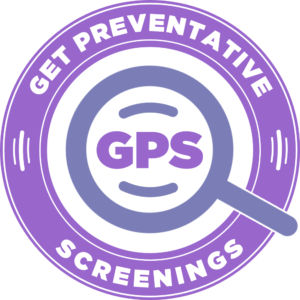
Pointing You In the Right Direction
for Good Health
At St. Christopher Fund, we consistently strive to provide preventative health programs to benefit professional truck drivers.
SCF will be providing free cancer screening kits for all Class A, OTR drivers. The SCF is working with Call on Doc to provide cancer screenings to be done in the privacy of your truck or home. Each screening is a $50 value.
Currently, prostate cancer screenings are available. Later in 2024 we plan to offer colon cancer and cervical cancer screenings as well.
OTR drivers can send a request of screening(s), along with a copy of their Class A CDL on our GPS form. Upon approval of the request, drivers will be sent a specific link to order the test kit. Once the screening(s) is complete, Call on Doc will inform the driver of their result(s). If a positive was found, Call on Doc will assist the driver in finding follow-up care.

Register Today
for Your FREE Kit
Know The Risk Factors

Increased Risk of Prostate Cancer
Age: After age 50, your chance of having prostate cancer is increased.
Family history: If a close family member, father, uncle or brother , was diagnosed with prostate cancer before age 65, your risk of the disease is greater than average.
Diet: A diet that’s high in animal fats and low in vegetables may increase your risk of prostate cancer.
When to be screened: the general recommendation is to have a PSA test every 2 years from age 50 to age 69, unless you are at increased risk, then screenings should start between 40-45.

Increased Risk of Colon/Colorectal Cancer
Age: The majority of colorectal cancers occur in people older than 50.
Gender: Men have a slightly higher risk of developing colorectal cancer than women.
Family history: Colorectal cancer may run in the family if first-degree relatives (parents, brothers, sisters, children) or many other family members (grandparents, aunts, uncles, nieces, nephews, grandchildren, cousins) have had colorectal cancer. This is especially true when family members are diagnosed with colorectal cancer before age 60.
Physical inactivity and obesity: People who lead an inactive lifestyle, meaning no regular exercise and a lot of sitting, and people who are overweight or obese have an increased risk of colorectal cancer.
Diet: Current research consistently links eating more red meat and processed meat to a higher risk of the disease.
Smoking: Recent studies have shown that smokers are more likely to die from colorectal cancer than nonsmokers.
When to be screened: Colon/colorectal cancer: from ages 45-75, with either yearly at-home testing, or a colonoscopy every 10 years (if not at increased risk).

Increased Risk of Cervical Cancer
HPV: exposure to high-risk types of the human papilloma virus
Smoking: Women who smoke are about twice as likely as those who don’t smoke to get cervical cancer.
Diet: Women whose diets don’t include enough fruits and vegetables are at increased risk for cervical cancer.
Family history: If your mother or sister had cervical cancer, your chances of developing the disease are higher than if no one in the family had it
Pregnancies: Women who had their first full-term pregnancy before age 20, and women who have had 3 or more full-term pregnancies, are at great risk.
Birth control: the risk of cervical cancer goes up the longer a woman takes birth control, but the risk goes back down again after the OCs are stopped, and returns to normal many years after stopping.
Diet: Current research consistently links eating more red meat and processed meat to a higher risk of the disease.
Smoking: Recent studies have shown that smokers are more likely to die from colorectal cancer than nonsmokers.
When to be screened: women aged 21-65 should be screened annually.
